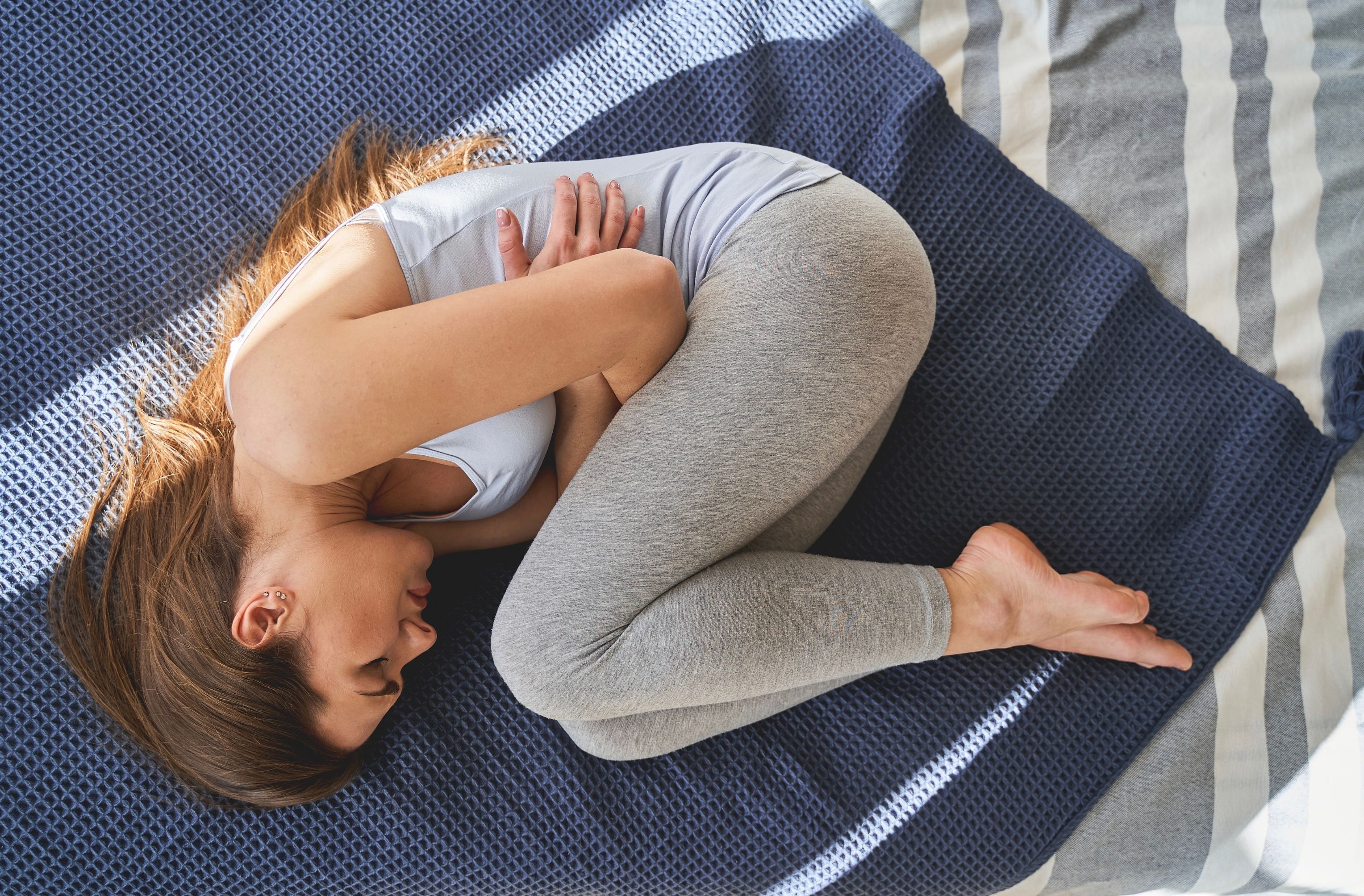
Premenstrual Syndrome (PMS) affects a significant portion of menstruating women, manifesting through a variety of physical and emotional symptoms in the days leading up to menstruation. Symptoms can include mood swings, irritability, bloating, breast tenderness, fatigue, and changes in sleep patterns. While the exact cause of PMS remains unclear, it is widely believed to be related to hormonal fluctuations during the menstrual cycle.
One interesting I found is that there are different categories of PMS and how they might affect you. In terms of the different categories of PMS, in many cases there will be some overlap in the symptoms, and combining the advice from 2 or more of the categories I explore below, may be most helpful to reduce the effect of PMS.
What type are you?
PMS-A: Anxiety

PMS-A stands for anxiety, often mixed with irritability and mood swings. This type is mostly due to oestrogen dominance, meaning there's more oestrogen compared to progesterone. This hormonal imbalance can lead to anxiety, mood swings, and water retention. Plus, it can make your periods heavier and more painful, and you might notice your cycle is shorter, with periods arriving sooner than every 28 days. Fun times, right 🙃
Diet & Lifestyle Tips:
- Diet: Keeping an eye on your diet and weight is crucial if you have PMS-A. For example, dairy can make oestrogen-dominant symptoms worse, and carrying extra weight can increase oestrogen levels because fat cells store oestrogen.
- Liver Health: It's also important to support your liver since it helps get rid of excess oestrogen. Regular bowel movements are key to relieving pressure on your liver, so if you’re dealing with constipation, it’s time to tackle that too.
PMS-D: Depression

PMS-D stands for depression, and it's important to distinguish between a low mood and clinical depression. If you suspect you're dealing with depression, it's crucial to consult a doctor immediately. However, if you're experiencing a low mood, especially one that seems to coincide with your menstrual cycle, then hormonal changes might be the culprit.
Often, low estrogen levels, especially when paired with relatively high progesterone levels, are behind these feelings of low mood. This hormonal imbalance can lead to slightly longer menstrual cycles, so you might find that your periods are less frequent, perhaps not arriving every four weeks.
In the past, PMS-D was thought to affect only a small group of women. But nowadays, possibly due to the widespread use of hormonal contraceptives, more women are experiencing symptoms typically associated with low estrogen levels.
Diet & Lifestyle Tips:
- If you're dealing with PMS-D, it's essential to take some extra time for self-care. Make a conscious effort to relax and engage in activities you enjoy, even when you're feeling down. Spending time with friends, getting fresh air, and staying active can work wonders. Though you might feel like curling up on the couch, pushing yourself to laugh and move around can release endorphins, those feel-good hormones, to help lift your spirits during these times.
So, give yourself permission to focus on your well-being. Treat yourself kindly, prioritize activities that bring you joy, and don't underestimate the power of a little self-care to help you navigate those monthly mood swings.
PMS-H: Hyper-Hydration

PMS-H stands for hyper-hydration, which means dealing with water retention and bloating. While PMS-H can often occur alongside other PMS types, for some women, this bloating and water retention are the main issues. Tackling any obvious hormone imbalances is a great starting point, and you can support your body with the right diet, lifestyle changes, and supplements.
Lifestyle Advice: A lot of people think that drinking more water will just make bloating worse, but it’s actually the opposite. When you stay well-hydrated, your body won’t feel the need to hold onto extra fluid. Aim to drink at least 1.5 liters of water a day. Remember, teas and coffees don’t count towards this goal—in fact, caffeine can make bloating worse.
Diet Tips:
- Salt Intake: Be mindful of how much salt you’re consuming. High salt intake can cause your body to retain water, making bloating worse.
- Potassium-Rich Vegetables: Include plenty of vegetables that are rich in potassium, such as spinach, sweet potatoes, and bananas. Potassium helps balance out the negative effects of sodium and can reduce water retention.
By adjusting your diet and staying hydrated, you can help manage the symptoms of PMS-H and feel a lot more comfortable.
PMS-C: Cravings

PMS-C stands for cravings, especially for sweet treats. If you find yourself reaching for sugary snacks more than usual, you might be dealing with PMS-C. It's important to recognize this early on because giving in to these cravings can cause blood sugar fluctuations. Over time, these fluctuations can disrupt your hormones even more, leading to a vicious cycle. This type of hormonal imbalance is often linked to conditions like PCOS.
Lifestyle Advice: Managing cravings can be tough, but with better choices, you can improve your blood sugar levels. Start by replacing refined sugars found in sweets and chocolates with more savory options like nuts, seeds, or wholegrain snacks.
Diet Tips:
- Healthy Fats and Protein: Make sure you’re getting enough healthy fats and protein in your diet. These nutrients help slow down the release of sugars from carbohydrates into your bloodstream, keeping your blood sugar levels stable.
- Balanced Snacks: Opt for snacks that combine proteins, fats, and complex carbs. For example, an apple with almond butter or whole-grain crackers with cheese can keep you satisfied and help curb those sugar cravings.
By focusing on a balanced diet and making mindful choices, you can manage the symptoms of PMS-C and break the cycle of cravings and blood sugar swings.
PMS-P: Pain

PMS-P stands for pain, specifically the kind you feel during your period. This type of PMS is relatively new and not as well recognized or understood. It often overlaps with other PMS subtypes, but for some women, pain is the main issue. The cramps are thought to be caused by pro-inflammatory chemicals called prostaglandins, which are released from the womb during your period. The exact reasons why some women suffer more than others aren't fully understood, but heavier periods can make the pain worse. Addressing hormonal imbalances, like those seen in PMS-A, can be a good starting point.
Lifestyle Advice: If period pain is getting you down, following an anti-inflammatory diet can help.
Tips
- Diet: Reduce your intake of refined sugars, artificial sweeteners, and processed foods. It might also help to cut down on animal proteins like red meat and dairy to see if it makes a difference.
- Heat Therapy: Applying heat with a hot water bottle or heating pad can be surprisingly soothing and help relieve cramps.
By making these dietary changes and using heat therapy, you can manage the pain associated with PMS-P and find some much-needed relief
Final Thoughts
PMS is a complex and varied condition, but with the right knowledge and strategies, it can be managed effectively. Understanding the different types of PMS and tailoring your approach to your specific symptoms is key. Whether it's tweaking your diet, embracing regular exercise, or exploring herbal remedies, there are many ways to find relief.
Let’s continue to raise awareness and support each other in navigating the challenges of PMS. Remember, you're not alone, and there are always ways to feel better.


